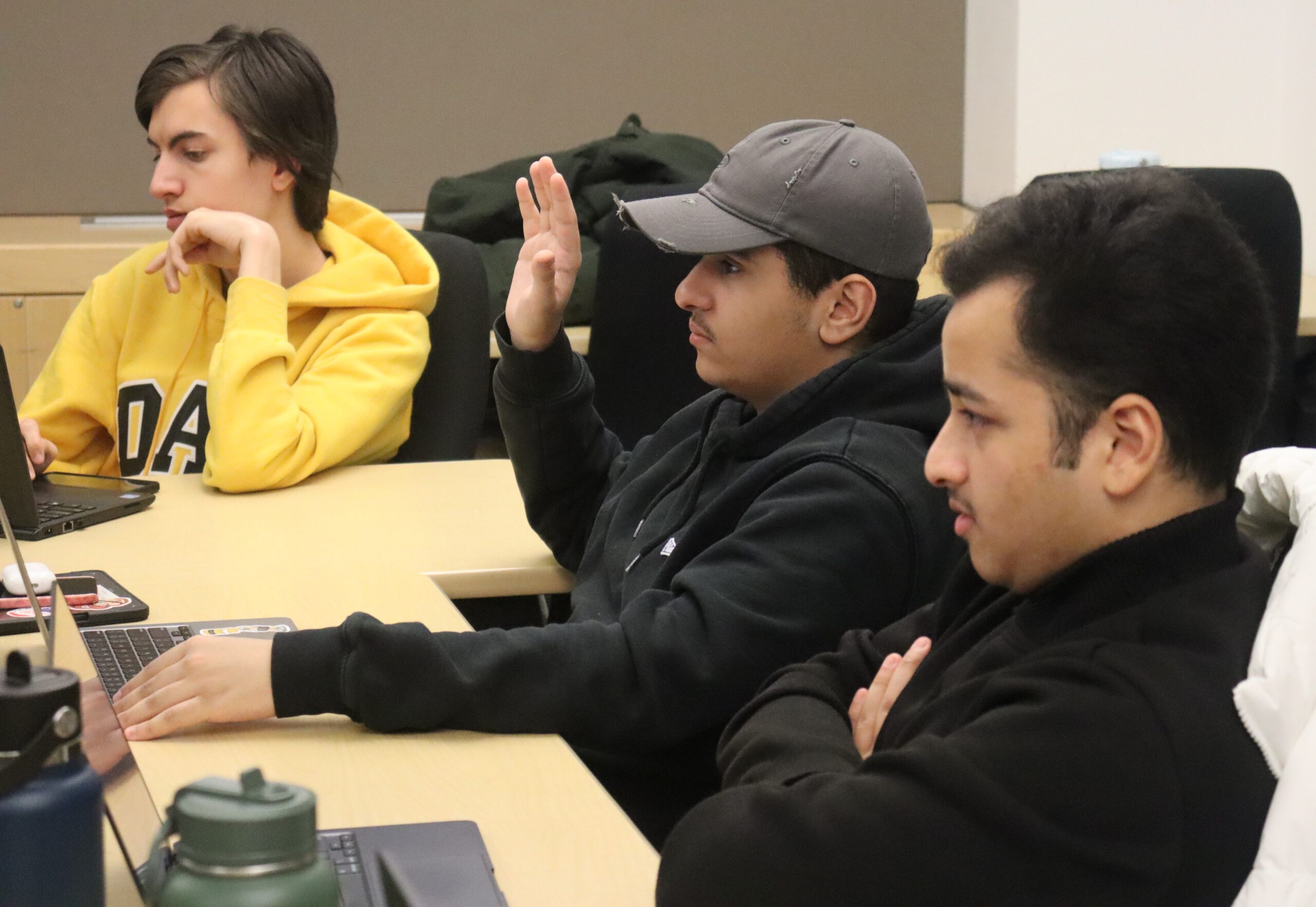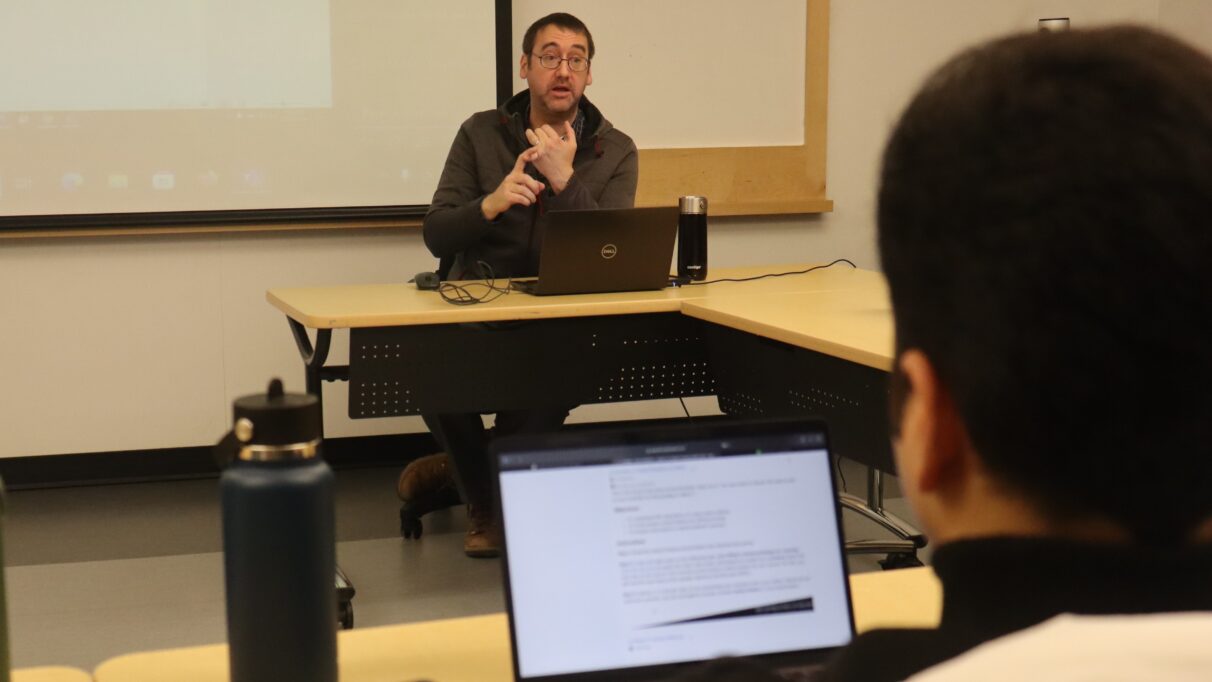International student cap leaves educational institutions reeling
Institutions are adjusting strategies to preparie for revenue decreases they expect to result from new federal government restrictions

caption
Alajmi Ahmad asks a question in an EAP Level 1 class, in the English learning school at Dalhousie University.Universities, language schools and immigration consultants in Halifax are preparing for reduced revenues following the federal government’s recently announced cap on international students.
“Pretty much everyone we work with is concerned,” said Shawna Garrett, EduNova president and CEO.
EduNova is a non-profit association of education and training providers that focuses on recruiting international students and helping them study and stay in Nova Scotia.
On Jan. 22, Immigration, Refugees and Citizenship Canada announced it would issue 360,000 study permits in 2024, a decrease of 35 per cent from the previous year. The Canadian government hadn’t previously set a cap on the number of international students.
“We want to emphasize that this abrupt, sweeping policy change could significantly negatively affect our universities, colleges and the language sector,” Garrett stated in a media release on Jan. 24.
The Atlantic Economic Council predicted the number of international students could fall 27 per cent in Atlantic Canada next year.
“Atlantic universities and colleges may face significant revenue hits,” said David Chaundy, president and CEO of the Atlantic Economic Council on X, formerly known as Twitter.
International students make up 26 per cent of the total student body at Saint Mary’s University.
In 2022, there were 7,286 international students enrolled in Halifax universities, making up approximately 23 per cent of the city’s total university enrollment, according to the Halifax Partnership.
“There’s no doubt that it’s going to be very concerning, especially for those international students that are currently making plans to come to Saint Mary’s,” said Margaret Murphy, vice president of external affairs at the university. “Yes, the tuition and fees that they pay are an important source of revenue.”
Murphy said she was unsure what the specific allocation cap for Saint Mary’s would be in the next academic year. University recruiters and international students are worried because fewer study permits will be issued. The best Saint Mary’s can do is stay connected with prospective international students, said Murphy.
“We’re not going to react too quickly on the basis of what might happen in one year,” she said. “We’re going to look at the planning node over several years and try to manage through any disruptions to enrollment.”
An economist says the federal government’s decision not only affect schools but also the provincial population plan.
“Certainly, if the number is drastically reduced, that would have an impact on the schools and no question about that,” said Ian Munro, the chief economist of the Halifax Partnership. “In the grand scheme, we want these bright young people here to contribute to our workforce in the future.”
He added, “If we had a significant decline in the number of international migrants coming here, then I suspect we would also see a significant decline in the growth of the labour force.”
Cap could affect province’s goal for population of 2 million by 2060
The “grand scheme” is Munro’s reference to the Nova Scotia provincial government’s goal to double its population by 2060. The province’s population hit one million in 2022.
EduNova’s Garrett says the cap will make meeting that target more difficult.
“A cap like this could hinder the efforts to attract and retain international talent in Nova Scotia,” Garrett stated in a media release.
Language centres in universities are dependent on international students.
“Language centres are very concerned that this is going to have a major impact on the students that come through their language school,” Garrett said.
All universities require international students’ language grades when admitting them. The language centre teaches international students academic English and offers an environment for students to get familiar with the Canadian education model before formal university classes.

caption
Kris Mitchell teaches in an EAP Level 1 class, in the English learning school at Dalhousie University.“In English language teaching, what we do is always affected by policy change,” said Dianne Tyers, dean of the English learning school at Dalhousie.
Tyres said her school may add more online courses or programs that teach university professors how to teach international students, which do not require students to enter Canada to study.

caption
Students from Colombia enrolled in the “Language Educators’ Program” take a group photo at McCain Scotiabank Auditorium. It’s a program for language teachers interested in EMI (English as a Medium of Instruction.)Daisy Dong, owner of All-Lane Immigration, is also struggling to adjust her direction to find solutions for clients affected by the immigration department’s new regulations.
“What I am sure of is that the number of people applying for study permits will definitely decrease,” Dong said. “But there are alternative options.”

caption
Daisy Dong talks with her client at her company on Spring Garden Road.The alternative option that comes to Dong’s mind for troubled clients is a visitor visa. If someone holds a visitor visa to come to Canada and applies for a study permit within the country, it exempts them from the cap.
“However, the reject rate for visitor visas is even higher than study permits,” Dong said.
About the author
Xixi Jiang
Xixi Jiang, who often goes by Jacky, is from China. She’s a fourth-year student in BJH program at the University of King’s College.
